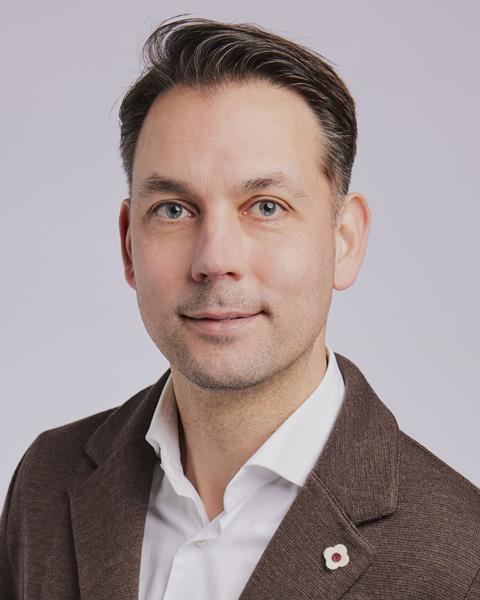Nedlloyd pension fund, the €1.1bn Dutch scheme of shipping firm Maersk, has ended its engagement overlay service contract with Columbia Threadneedle Investments. The combination with an active investment policy was not optimal, the pension fund has concluded.

The Nedlloyd pension fund, like 16 other Dutch pension funds, had been using the engagement overlay service of Columbia Threadneedle Investments (formerly BMO GAM) since 2009. In practice, this meant that the asset manager would engage with companies on ESG risks such as climate change, deforestation and biodiversity on behalf of pension funds.
For many of the schemes that use its engagement overlay service, Columbia Threadneedle also votes at shareholder meetings.
But not for Nedlloyd pension fund. This is because the fund invests in equities through five actively managed investment funds, with the managers of these funds being in charge of engagement and voting themselves.
“This does not work optimally in practice, as the managers of these funds may have different priorities than Columbia Threadneedle. Their voting policies therefore may work against the priorities of the overlay manager,” explained executive board member Randy Caenen of Nedlloyd pension fund.
The fragmented nature of its engagement activities made it difficult to discern the results that were being achieved through engagement, according to Caenen.
Connecting consequences to, for example, a failed engagement, were also difficult. After all, after an unsuccessful engagement by Columbia Threadneedle, Nedlloyd could not decide to sell a company as that decision rested with the managers of its third-party investment funds.
Nedlloyd: on course to grandfather rights
The closed Nedlloyd pension fund will likely not make the transition to the new defined contribution (DC) pension system, because former employer Maersk sees no reason to request this
“They [Maersk] think the current situation is fine, and are not prepared to shoulder the extra costs associated with making the transition to a new pension system. So as things stand now, we will continue in the current [defined benefit] system,” said director Randy Caenen.
Nedlloyd is a closed fund with €1.1bn in total assets and 9,000 participants.
“We started discussions with Columbia Threadneedle about this, and eventually concluded that we did not want to get stuck in a solution that was sub-optimal for us. We decided that because of our specific situation [of being an active manager], their engagement service adds too little at the moment,” concluded Caenen.
Karlijn van Lierop, responsible for Columbia Threadneedle’s engagement service, told IPE she understood the pension fund’s decision.
“Because of this split between engagement and voting, it may indeed be the case that the voting policies of its mutual funds are not in line with those of the overlay manager,” she said.
Priorities
Nedlloyd has only recently developed its own responsible investment policy with concrete objectives.
“When we started the engagement overlay service in 2009, we had not yet developed clear focal points and had not formulated any clear goals,” Caenen said.
“But now we have. We want to focus our engagement activities on relatively polluting companies that still have ample room for improvement. We believe they will become more valuable if they tackle their pollution. We would like to help finance the energy transition,” he added.

Columbia Threadneedle asks its Dutch pension fund clients for their engagement priorities each year, according to Van Lierop. “Based on their replies, we propose certain projects. For this year, these are ending deforestation and preserving biodiversity.”
Still, an approach that requires the wishes of dozens of pension funds to be taken into account (in total, Columbia Threadneedle has 54 clients globally for its engagement overlay service) does not necessarily lead to an engagement policy in which every pension fund fully recognises itself.
“This is no criticism to Columbia Threadneedle, but pension funds in the Netherlands are simply not homogeneous in their wishes and objectives when it comes to responsible investing. If you are looking for an unambiguous policy with clear objectives, it is difficult. We were not sufficiently aware of this earlier and have learned from the evaluation,” Caenen observed.
Columbia Threadneedle’s Van Lierop, in response to Caenen’s comments, said her firm is in the process of developing engagement services that are more tailored to the specific demands of individual pension funds.
“Our clients will shortly be able to choose specific engagement themes, and only buy the modules in question,” she said.
New investment policy
Meanwhile, Nedlloyd pension fund is reviewing its equity portfolio in order to improve the effectiveness of its ESG policy.
“One option is to switch to one actively managed mandate, but we may also adopt an SRI index. Index investing need not be entirely passive, as you can make a lot of active choices in building your index too,” said Caenen. A decision is expected some time this year.
There is still a chance the pension fund will return to Columbia Threadneedle after reviewing its investment policy. “It may become interesting once more to work with them once we have implemented our new policy,” Caenen concluded.
This article appeared originally in Pensioen Pro, IPE’s Dutch sister publication.

















